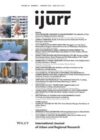Ron Martin’s recent critique of the canonical model of regional path dependence constitutes a significant original contribution to evolutionary economic geography, and is likely to open up a whole new range of promising directions of theoretical debate and empirical research. In the first part of my commentary, I highlight and discuss the following two assumptions implicit in his work: (1) broader and less restrictive models are better than narrow and restrictive ones; and (2) economic geographers are better served by a model that emphasizes change than by one that emphasizes continuity. In the second part of my commentary, I suggest that Martin’s own alternative model could be further developed by: (1) replacing the binary distinction between ‘path as movement to stable state’ and ‘path as dynamic process’ with a continuum; (2) avoiding, with the help of mereology, the hasty generalization to regional economies of processes of change originally theorized in the context of institutions; and (3) tracing the implications for evolutionary economic geography of the recent analytical work on contingency — a hitherto under‐theorized concept that has been central to evolutionary reasoning in general, and to the problematic of lock‐ins in particular.
Details
Written by:
DRAGOS SIMANDAN
Digital Object Identifier (DOI)
10.1111/j.1468-2427.2011.01090.x
About DOI
Read full article as PDF
Read full article as HTML
See the references for this article
